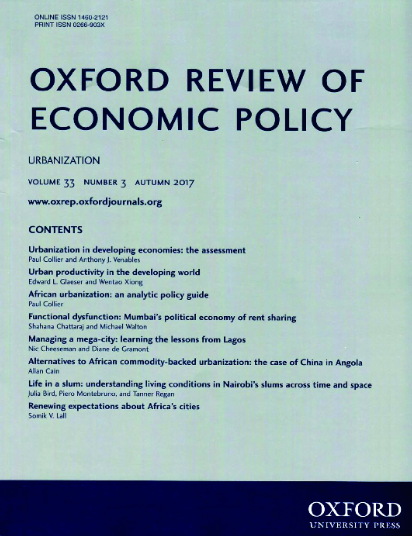区域一体化与收入不平等:对欧洲货币联盟的综合反事实分析
IF 1.8
2区 经济学
Q2 ECONOMICS
引用次数: 7
摘要
在欧洲,公众舆论和国家政治家将经济不安全和不平等加剧归咎于欧盟(EU)内部更深层次的区域一体化,尤其是欧元,这是很常见的。然而,没有实证研究明确指出欧元是近期收入不平等加剧的原因。使用Abadie和Gardeazabal(2003)开发的综合反事实方法,我估计如果这些国家没有转向单一货币,欧元区国家的总收入和净收入不平等会发生什么变化。在大多数国家(尤其是外围国家),如果没有欧元,总收入不平等程度会更低,而净收入不平等程度会更高。这些结果表明,尽管更深层次的经济一体化可能加剧了总收入不平等,但较低的利率使各国能够通过其社会福利计划抵消这些差距。本文章由计算机程序翻译,如有差异,请以英文原文为准。
Regional integration and income inequality: a synthetic counterfactual analysis of the European Monetary Union
In Europe, it is quite common for public opinions and national politicians to blame economic insecurity and rising inequality on deeper regional integration within the European Union (EU), and especially on the euro. There is, however, no empirical research that clearly identifies the euro as the cause of the recent increase in income inequality. Using the synthetic counterfactual methodology developed by Abadie and Gardeazabal (2003), I estimate what would have happened to inequality in both gross and net income within euro-area countries, had these countries not switched to the single currency. In most countries (especially peripheral countries), without the euro, gross-income inequality would have been lower, while net-income inequality would have been higher. These results imply that, while deeper economic integration might have exacerbated gross income inequality, lower interest rates allowed countries to counteract these disparities with their social welfare programmes.
求助全文
通过发布文献求助,成功后即可免费获取论文全文。
去求助
来源期刊

Oxford Review of Economic Policy
ECONOMICS-
CiteScore
12.50
自引率
1.50%
发文量
41
期刊介绍:
The Oxford Review of Economic Policy is a refereed journal which is published quarterly. Each issue concentrates on a current theme in economic policy, with a balance between macro- and microeconomics, and comprises an assessment and a number of articles. It gives a valuable appraisal of economic policies worldwide. While the analysis is challenging and at the forefront of current thinking, articles are presented in non-technical language to make them readily accessible to all readers. The Oxford Review is aimed at a wide audience including government, business and policy-makers, as well as academics and students. It is required reading for those who need to know where research is leading.
 求助内容:
求助内容: 应助结果提醒方式:
应助结果提醒方式:


